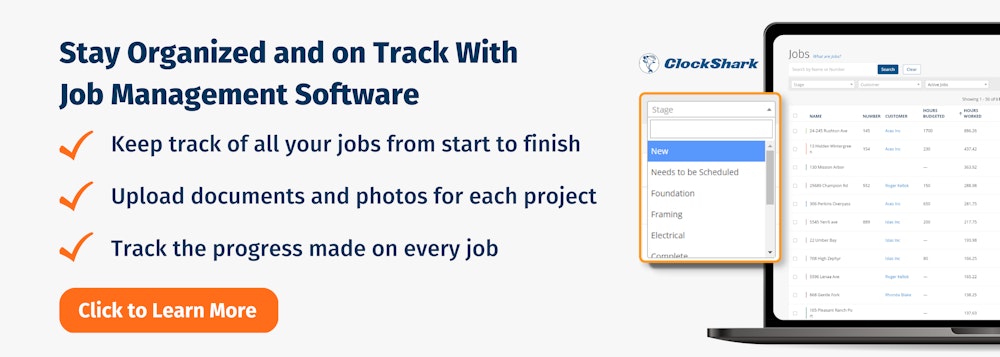Running a family business is not as easy as picking up the reins and getting busy.
There is a lot involved in continuing a legacy with a family business in a successful and sustainable way. When you’re working in construction and trades, it’s important to plan and prepare, to help enhance the company’s chance of success.
The U.S. economy has a very heavy reliance on family-owned businesses (FOBs). Not only do they provide 62 percent of the country’s employment, but they make up 90 percent of all business enterprises in the U.S., according to statistics. However, research shows only 30 percent of these businesses survive the first transition and only 12 percent of family businesses remain in the family for over 60 years.
There are multiple reasons for having a family business, and many benefits as well.
Perhaps you want to create a legacy that will be passed down for generations, or maybe you like the appeal of keeping the money in the family. Whatever your reasons, having a family-owned business in construction and trades requires thinking ahead and laying some groundwork.
To increase your family-owned business’s chance of success, it’s crucial to understand the challenges, the solutions, and the steps necessary to keep your business’s foundation solid.
How to Run a Family Business
No matter how well you get along with your family members or how much you think you’re on the same page with their visions of your company and work, you still need to create clear outlines that establish key components of running the business as a family.
1. Create a Business Plan
All successful businesses need the usual business plans, strategies, vision, and mission. For a family-owned business, your business plan does more than just guide the direction of the company. It establishes a clear vision, mission, and goals for your business so you and your family members are clear about the plans moving forward.
When creating a business plan for a family business, the process can help identify important differences among family members that need to be addressed and rectified. This plan helps you clearly define the mission of the business and what your plans are as an organization, to grow and expand in the future.
Work with everyone involved to ensure everyone agrees with the business plan, mission, and vision of the company. If there are any major issues, discuss these among everyone involved and be open to all input, until a business plan is in place that aligns with everyone’s vision of the company.
2. Establish Company Culture
Company culture is a crucial element to having a successful business of any kind.
When you have a service-based business such as those in the trades (i.e., painting, landscaping, construction, HVAC, etc.) that is family-owned, you’ll need to establish a company culture early on.
If you compare it to a holiday get-together with your family, your behaviors would likely be different at an elderly family’s home than, say, a twin sibling’s home. That’s because the culture within those environments is different, even if the people attending are the same.
Similarly, your company culture should be a clear and solid description of what is expected of employees within the company. This paves the way for a separation between how everyone interacts with the business vs. how they are outside of business.
3. Define Roles and Responsibilities
Although it’s a family business, you’ll need to have clear definitions of everyone’s roles and responsibilities. Of course, everyone in the family (and business) wants to see it succeed and since the family’s legacy is tied to its success, it can make power struggles far more common and challenging.
Ultimately, everyone’s goal is to succeed but, to do that, everyone needs to play their part in a way that contributes to the whole. Each employee/family member should have a clear title, role, and outline of their responsibilities.
Consider each person’s strengths and play to those strengths. Perhaps one family member is strong in accounting, while another is better in estimates or marketing. When assigning roles, make sure everyone gets a role they are comfortable in and confident they can perform. Within those roles, be sure everyone knows the responsibilities that come with that role.
4. Establish Clear Communication
Even if you know each other very well and can almost always read each other’s minds, don’t assume that will be the case in business. Communication is crucial to ensure everyone knows what is happening within the company. This is especially true in a field or construction trade, where you’re not always together at the same location, in which case a field service management software is an ideal solution.
How will calls be handled? How will change orders be communicated? Who do employees go to with issues or problems? How are any challenges going to be discussed, and when? How (and who) will handle service calls?
It might be tempting to take complaints personally when dealing with family members in business but remember: This is business. And, again, everyone wants to see the company succeed. So if you (or a family member) have a concern, everyone should feel comfortable addressing this concern and everyone should be open to hearing it and working together to find a solution.
5. Manage Family Dynamics and Conflict Resolution
All families experience conflict. When running a business together, it’s important that family life is separated from the business. Unresolved issues can surface if not dealt with before going into business. Be sure everyone takes care to address any unresolved problems to avoid carrying them into the workplace.
Those in leadership positions should be willing to evaluate each family member’s ability to address tension or conflict and attempt to discuss and resolve any old or unsettled problems.
6. Balance Work and Family Time
Both business and family are important but when you have a family-owned business, it’s important to find a balance between these things. If your family relationships are focused solely on business, it leaves little room for you to share valuable family events on a personal level.
Although, if the main focus is on family rather than business, you risk focusing too much on keeping the peace and making everyone feel comfortable, at the expense of your company’s success.
Establish a healthy balance of work and family time, so family time is reserved for good times, fun, and connection while business is handled professionally and without the pressure of being related to one another. Putting in the effort to have regular family events - movies, dinners, etc. - that don’t involve business helps keep family ties firm.
7. Keep the Peace
When you’re managing a business, it’s easy to find solutions to conflict if it’s due to a problematic employee. However, when dealing with family members, the issue is more sensitive.
The first and most important step to keeping the peace within a family-owned business is establishing the abovementioned roles and responsibilities. These create natural boundaries and expectations, so everyone knows the workplace is not where family drama happens.
As the leader, you (and/or your partner[s]) are responsible for handling personnel issues and conflict which, in itself, might be challenging for you, especially when it’s family. Of course, you want everyone to be happy. However, you also have a business to run.
Stay Neutral
When dealing with family-business conflict or friction, the most important thing to do is remain neutral when assessing a situation. Remember: Regardless of the source of this conflict (business, personal, etc.), there is still a business to run, and the business is separate from the family, even if the family is in the business.
Make Time for Everyone
When put in a position to have to resolve a conflict between family members, you’ll have to be intentional in your problem-solving to make sure everyone involved feels they’ve been heard.
Set aside time to listen to input from everyone involved. Take notes and ask questions. Make sure you’ve set aside enough time to fully hear what everyone has to say. Take into consideration outside factors and unaddressed resentment or issues among the parties involved.
Avoid Placating
It may be tempting to try to resolve the conflict by giving everyone what they want. However, that will not only diminish your leadership capabilities and role but could cause damage to the culture of your company.
Ask yourself: What would your solution be if the parties involved were not your family members? It might be difficult, but business comes with many difficult decisions and just because they’re related, you still have a business to run.
Seek Outside Consultation
If you’re unable to find a solution yourself or within the company, a business coach or advisor is an impartial party who can come in and evaluate the situation and offer advice on how to resolve the conflict.
Keeping the peace in a family-owned business is a challenge that every FOB has faced. However, using your skills as a leader to stay fair and objective, while also being firm and confident, will instill a sense of professionalism and respect within the company.
8. Plan for the Future
Many family-run businesses suffer by not having a clear succession plan in place. A succession plan will outline who takes over the business when the current leader retires, dies, or becomes otherwise incapable of running the business.
Since only 30 percent of family-owned businesses get through the first transition, the importance of this plan cannot be overstated. Take time to meet with everyone involved in a place that is neutral and relaxing. The plan should be discussed openly and honestly, with no pressure or animosity.
Ultimately, the goal is to determine who will be the best person to take over the business when you can no longer be there.
Save Time and Money with ClockShark
9. Leverage Technology to Streamline Operations
It can be stressful trying to run a business and manage family members as employees. However, technology - such as apps for small businesses - can help significantly reduce that stress and make running a family-owned business much easier. Rather than having to be everywhere at once, technology takes responsibility for monitoring many of your operations, so you don’t have to.
No Micromanaging
When employees have the tools needed to get information quickly and easily at their fingertips - such as a CMS system that allows them to pull up job information - they don’t have to constantly call in and ask for clarifications.
Better Communications
With field management software, all the information and updates (schedule, customer, job, etc.) are in one place for everyone to see and it’s all available in real time. This makes it easier for everyone to be on the same page, and to understand what is happening at the moment and who is doing what, and where.
More Accountability
Time tracking makes it easier for you to know who is doing what, where, and for how long, and it creates a sense of accountability for those who are doing it. You won’t have to worry about asking employees what they did for work that day because it has all been recorded already.
Better Efficiency
From job quotes and invoices to scheduling and job costing, technology makes your operations run more efficiently in countless ways. Time tracking allows your administrators to quickly run payroll in minutes and GPS tracking allows you to pull up a map of who’s nearest to an emergency call, decreasing response times and improving customer experience.
Successfully Run Your Family-Owned Business
Family-owned businesses come with both rewards and challenges, unique to family operations. Clear boundaries, roles, responsibilities, and expectations will make it easier to manage, and using the right tools, strategies, and problem-solving techniques will enhance your chances of success.






